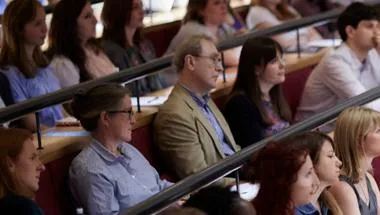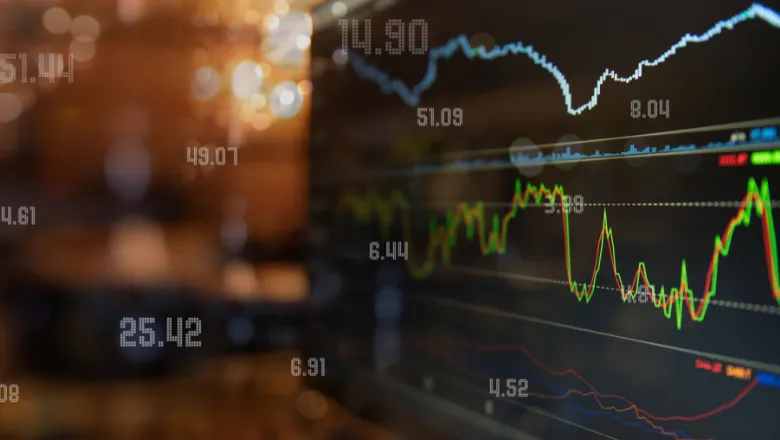
Dr David Hope
Senior Lecturer in Political Economy
Research interests
- Economics
- Policy
- Politics
Biography
Dr David Hope is a Senior Lecturer in Political Economy in the King’s College London Department of Political Economy. He is also a Visiting Senior Fellow at the London School of Economics (LSE) International Inequalities Institute (III). Prior to joining King’s, he was a post-doctoral researcher at the LSE International Inequalities Institute. David holds a PhD (2017) in Political Science from the LSE Department of Government and has previously studied Economics at both the LSE (MSc) and University College London (BSc). During his time as a PhD student, he was an Economics Editor for the CORE Project; an ambitious international collaboration to overhaul the undergraduate economics curriculum. In his professional life before beginning the PhD, he worked as an economist for PwC, Oxera and HM Treasury.
Office hours
Tuesday: 10.00 - 11.00
Wednesday: 11.00 -12.00
You can book a lot at the link here: https://davidhope-officehour.youcanbook.me/
Research
David researches at the intersection of economics and political science. He specialises in comparative political economy and works predominantly on the advanced democracies of Western Europe and North America. His current areas of interest include: technological change and the knowledge economy; inequality and redistribution; taxing the rich; and varieties of capitalism and growth models. He uses a range of research methodologies in his work including both quantitative and qualitative approaches.
His recent work appears in World Politics, Socio-Economic Review, PSRM, Politics & Society, European Journal of Political Economy, and the Journal of European Public Policy (among others). More details about David’s research, including his publications, can be found on his website. More details about his joint work with Dr Julian Limberg (also KCL DPE) on taxing the rich can be found at taxrich.uk.
Teaching
- Principles of Economics (1st year undergraduate module)
- The Political Economy of Inequality (3rd year undergraduate module)
PhD Supervisions
David is interested in supervising students researching on the advanced democracies (i.e. the OECD countries) in the following areas:
- Comparative political economy
- Varieties of capitalism and growth models
- Technological change and the knowledge economy
- Inequality and redistribution
- Taxing the rich
Research

Comparative Politics Research Group
The Comparative Politics research group hosts a research agenda based on political institutions, representation and regimes.

Quantitative Political Economy Research Group
The Quantitative Political Economy research group gathers economists and political scientists that are committed to bridging the two disciplines. The common ground is the study politics and policies with advanced quantitative methods and formal modeling.

Social Equity and Social Welfare
The Social and Social Welfare subgroup delivers theoretically and empirically grounded research focused on gender and income inequality, social policy and social welfare, taxation, and redistribution.
News
New study shows tax cuts provide significant boost to financial sector
Cutting the top rate of income tax provides a significant boost to the size of a country’s financial sector relative to other industries, according to a new...

Desire to tax high-earners diminishes if their work is perceived as 'complex'
The desire among citizens to tax high-earners is heavily influenced by how difficult their work is perceived to be, a new study has found.

Is inequality behind fall in support for carbon tax policies?
A new project led by a King’s academic will examine whether rising inequality is linked to falling levels of public support for carbon tax policies.

Grant funding approved for major new project
A major new project which aims to deepen academic understanding of the knowledge economy has been backed with grant funding from a leading research trust.

Study looks at the factors behind support over tax cuts for wealthiest
Why do a significant number of ordinary Americans support tax cuts for the rich – and what may change their minds?

Relative education levels 'key driver' of attitudes towards responsibility for childcare
The attitudes of men and women towards responsibility for childcare is shaped more by their relative power within the household than the cost of deviating...

Expansion of knowledge economy has led to decrease in taxes on rich
Increasing levels of employment in the knowledge economy in developed countries has led to a decrease in taxes on the rich, a new study has found.

Study finds tax cuts for rich have 'no significant effect' on growth or jobs
Major tax cuts for the rich since the 1980s have worsened income inequality without boosting economic performance, a new study has found.

Research

Comparative Politics Research Group
The Comparative Politics research group hosts a research agenda based on political institutions, representation and regimes.

Quantitative Political Economy Research Group
The Quantitative Political Economy research group gathers economists and political scientists that are committed to bridging the two disciplines. The common ground is the study politics and policies with advanced quantitative methods and formal modeling.

Social Equity and Social Welfare
The Social and Social Welfare subgroup delivers theoretically and empirically grounded research focused on gender and income inequality, social policy and social welfare, taxation, and redistribution.
News
New study shows tax cuts provide significant boost to financial sector
Cutting the top rate of income tax provides a significant boost to the size of a country’s financial sector relative to other industries, according to a new...

Desire to tax high-earners diminishes if their work is perceived as 'complex'
The desire among citizens to tax high-earners is heavily influenced by how difficult their work is perceived to be, a new study has found.

Is inequality behind fall in support for carbon tax policies?
A new project led by a King’s academic will examine whether rising inequality is linked to falling levels of public support for carbon tax policies.

Grant funding approved for major new project
A major new project which aims to deepen academic understanding of the knowledge economy has been backed with grant funding from a leading research trust.

Study looks at the factors behind support over tax cuts for wealthiest
Why do a significant number of ordinary Americans support tax cuts for the rich – and what may change their minds?

Relative education levels 'key driver' of attitudes towards responsibility for childcare
The attitudes of men and women towards responsibility for childcare is shaped more by their relative power within the household than the cost of deviating...

Expansion of knowledge economy has led to decrease in taxes on rich
Increasing levels of employment in the knowledge economy in developed countries has led to a decrease in taxes on the rich, a new study has found.

Study finds tax cuts for rich have 'no significant effect' on growth or jobs
Major tax cuts for the rich since the 1980s have worsened income inequality without boosting economic performance, a new study has found.

